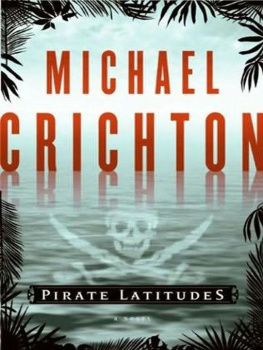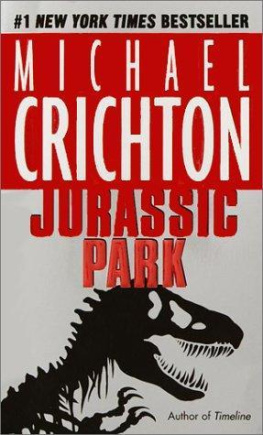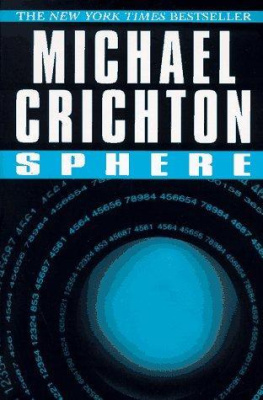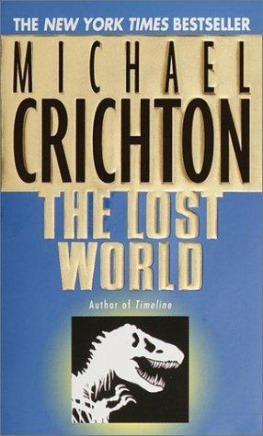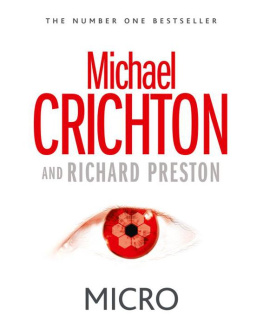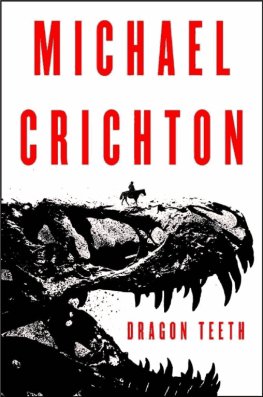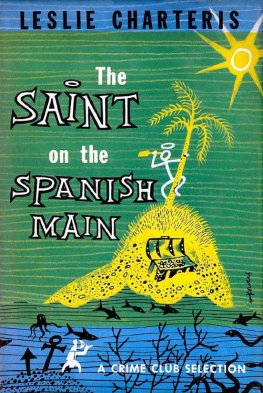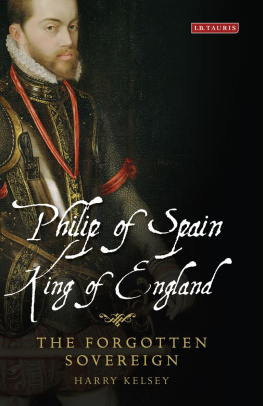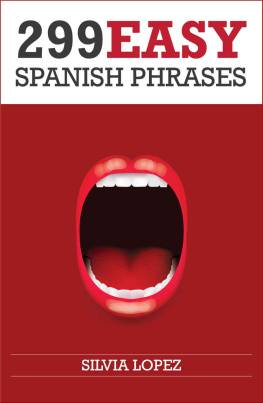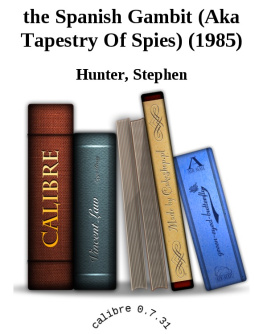A FTER THEY HAD spent so many days cramped aboard the Cassandra , the warship seemed enormous. Its main deck was so vast it appeared like a plain, stretched out before them. Hunters crew, hustled together by soldiers around the mainmast the same crew that filled the sloop to overflowing looked puny and insignificant here. Hunter looked at the faces of his men; they averted their eyes, not returning the gaze; their expressions were angry, frustrated, disappointed.
High above, the enormous sails fluttered in the breeze, making a noise so great that the dark Spanish officer confronting him had to shout to be heard.
You are captain? he bellowed.
Hunter nodded.
What is called?
Hunter, he shouted back.
English?
Yes.
You go to this captain, the man said, and two armed soldiers hustled Hunter below. Apparently, he was to be taken to the captain of the warship. Hunter looked over his shoulder, and had a last glimpse of his forlorn crew around the mast. Already, their hands were being bound behind their backs. The warships crew was efficient.
He stumbled down the narrow stairs to the gun deck. He had a brief glimpse of the long line of cannon, their crews standing ready, before he was roughly shoved aft. As he passed the open gunports to aft, he could look down at his little sloop, tied alongside the warship. Spanish soldiers were swarming over it, and the Spanish sailors of the prize crew were examining its fittings and lines, preparing to sail it.
He was not allowed to linger; a musket at his back prodded him along. They came to a door with two heavily armed, evil-looking men standing guard. Hunter noticed that these men wore no uniforms and assumed an air of peculiar superiority; they glanced at him with pitying disdain. One of them knocked on the door and said a few quick words in Spanish; there was an answering grunt, and they opened the door, and pushed Hunter in. One of the guards went inside as well, and closed the door.
The captains cabin was remarkably large, and ornately fitted. There was evidence of space and luxury everywhere. There was a dining table with a fine linen cloth, and gold plates set out for the evening meal by candlelight. There was a comfortable bed with a brocade bedcover laced in gold. A richly colored oil painting depicting Christ on the cross hung in a corner, above a cannon with an open porthole. In another corner, a lantern cast a warm golden light over the room.
There was another table at the rear of the cabin; maps covered it. Behind that table, in a plush red velvet chair, sat the captain himself.
His back was turned to Hunter as he poured wine from a cut-crystal decanter. Hunter could see only that the man was very large; his back was broad as a bulls.
Well now, the captain said, in very good English, can I persuade you to join me in a glass of this excellent claret?
Before Hunter could reply, the captain turned. Hunter found himself staring into glowering eyes set in a heavy face with a strong nose and jet-black beard. Without his wishing, the word sprang from his lips:
Cazalla!
The Spaniard laughed heartily. Did you expect King Charles?
Hunter was speechless. He was vaguely aware that his lips worked, but no sound came out. At the same time, a thousand questions sprang to mind. Why was Cazalla here, and not in Matanceros? Did that mean the galleon was gone? Or had he left the fortress in command of some capable lieutenant?
Or perhaps he was ordered away by a higher authority this warship might be bound for Havana.
Even as these questions flooded his mind, he was overcome by a cold fear. It was all he could do to keep his body from shaking as he stood and looked at Cazalla.
Englishman, Cazalla said, your discomfort flatters me. I am embarrassed I do not know your name in turn. Sit down, be at ease.
Hunter did not move. The soldier roughly shoved him into a chair facing Cazalla.
Much better, Cazalla said. Will you take your claret now? He passed Hunter the glass.
With the strongest effort of will, Hunter kept his hand from trembling as he took the proffered glass. But he did not drink; he set it immediately on the table. Cazalla smiled.
Your health, Englishman, he said, and drank. I must drink to your health while it is still possible to do so. You are not joining me? No? Come now, Englishman. Even His Excellency the Commander of the Havana Garrison does not have claret so fine as this. It is French, called Haut-Brion. Drink. He paused. Drink.
Hunter took the glass, and drank a little. He felt mesmerized, almost in a trance. But the taste of the claret broke the spell of the moment; the ordinary gesture of lifting the glass to his lips and swallowing brought him back to himself. His shock passed away, and he began to notice a thousand tiny details. He heard the breathing of the soldier behind him; probably two paces behind, he thought. He saw the irregularity of Cazallas beard and guessed the man had been some days at sea. He smelled the garlic on Cazallas breath as he leaned forward and said, Now, Englishman. Tell me: what is your name?
Charles Hunter, he said, in a voice that was stronger and more confident than he had dared hope.
Yes? Then I have heard of you. You are the same Hunter who took the Conception one season ago?
I am, Hunter said.
The same Hunter who led the raid on Monte Cristo in Hispaola and held the plantation owner Ramona for ransom?
I am.
He is a pig, Ramona, do you not think? Cazalla laughed. And you are also the same Hunter who captured the slave ship of de Ruyters while it was at anchor in Guadeloupe, and made off with all his cargoes?
I am.
Then I am most pleased to be acquainted with you, Englishman. Do you know your value? No? Well, it has gone up each passing year, and perhaps it has been raised again. When last I heard, King Philip offered two hundred gold doubloons for you, and eight hundred more for your crew to any who effected a capture. Perhaps it is more now. The decrees change, so many details. Formerly we sent pirates back to Seville, where the Inquisition could encourage you to repent your sins and your heresy in the same breath. But that is so tedious. Now we send only the heads, and reserve our cargo space for more profitable wares.
Hunter said nothing.
Perhaps you are thinking, Cazalla continued, that two hundred doubloons is too modest a sum. As you may imagine, at this very moment I agree with you. But you enjoy the distinction of knowing that you are the most valued pirate in all these waters. Does that please you?
I take it, Hunter said, in the spirit it was intended.
Cazalla smiled. I can see that you are born a gentleman, he said. And I wish to assure you that you shall be hanged with all the dignity of a gentleman. You have my word on that.
Hunter gave a small bow from his chair. He watched as Cazalla reached across his desk for a small glass bowl with a fitted lid. Inside the bowl were broad green leaves. Cazalla removed one of these leaves and chewed it thoughtfully.
You look puzzled, Englishman. This practice is unfamiliar to you? The Indians of New Spain called this leaf coca. It grows in the high country. To chew it brings energy, and strength. For women it provokes great ardor, he added, chuckling. You wish to taste for yourself? No? You are reluctant to accept my hospitality, Englishman.
He chewed a moment in silence, staring at Hunter. Finally, he said, Have we not met before?
No.
Your face is strangely familiar. Perhaps in the past, when you were younger?
Hunter felt his heart pound. I do not think so.
No doubt you are right, Cazalla said. He stared thoughtfully at the painting on the far wall. All Englishmen look alike to me. I cannot tell one from the next. He looked back at Hunter. And yet you recognized me. How can that be?
Next page
